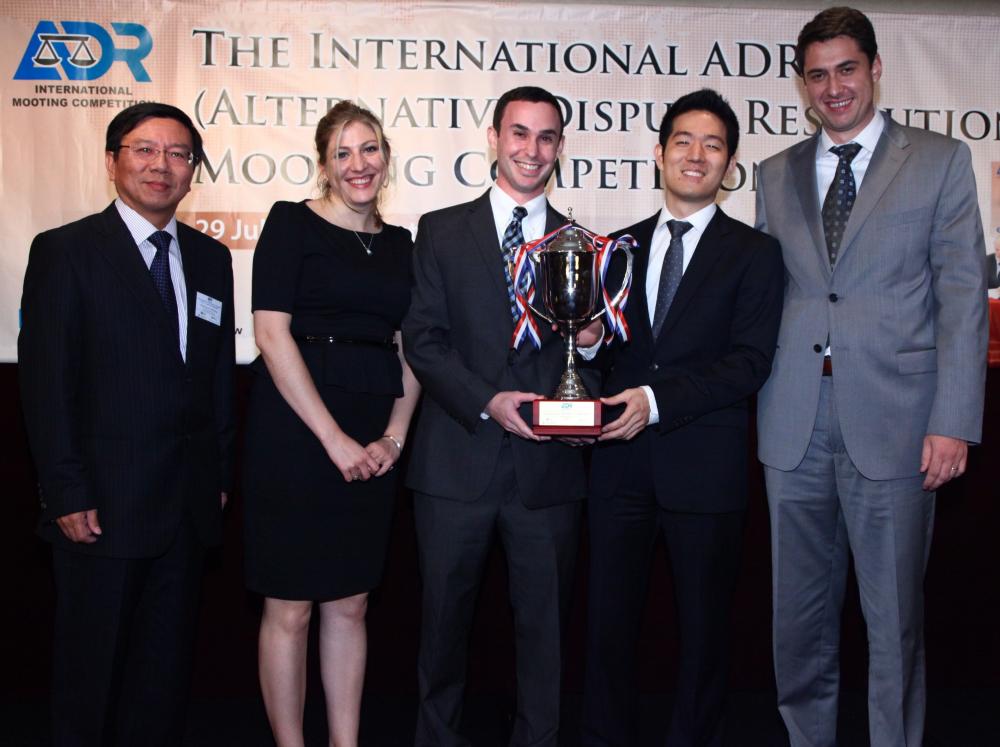Columbia Law School Student Team Brings Home Gold from International Mooting Competition
New York, Aug. 10, 2012—A student team from Columbia Law School won the third annual International Alternative Dispute Resolution (ADR) Mooting Competition, prevailing against 20 top law schools from around the world.
From left to right: Professor Gu Minkang, vice dean of School of Law, City University of Hong Kong, Corinne Champilou '15, Justin Epner 14, Philip Lee '13, and Parvan P. Parvanov J.D. '11 and LL.M. '09.
Competing team members were oralists Justin Epner ’14 and Philip Lee ’13, and mediator Corinne Champilou ’15. The team was coached by Parvan P. Parvanov J.D. ’11, LL.M.' 09, who as a student was mentored by two towering figures of international arbitration— Columbia Law School’s George Bermann, the Jean Monnet Professor of EU Law and the Walter Gellhorn Professor of Law, and the late Professor Hans Smit, whose unparalleled contributions to the field of arbitration are a lasting legacy at the Law School.
The competition, hosted by City University in Hong Kong, is the first such contest to combine both non-adversarial facilitative mediation and adversarial international arbitration, giving participants an arena to employ real-world professional skills. In its third year, the event attracted twice the number of teams that competed in 2010, drawing participants from the U.S., China, Hong Kong, Australia, Malaysia, Japan, India, Austria, India, Slovakia, the Czech Republic—and even Nepal.
